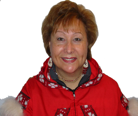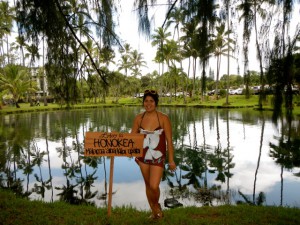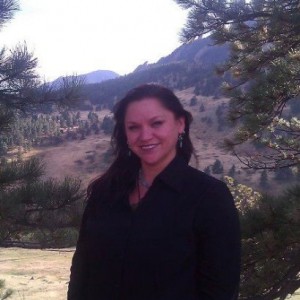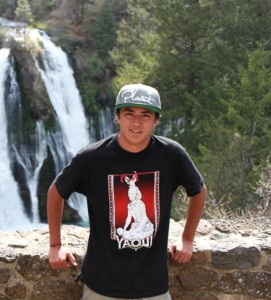3rd Annual Climate Change and Indigenous Peoples Conference:
Environment, Culture and Indigenous Sovereignty in the Americas
The University of Oregon hosted the 3rd Annual Climate Change and Indigenous Peoples Conference and Student Symposium: Environment, Culture and Indigenous Sovereignty in the Americas on December 2-3, 2014. The University welcomed Patricia Cochran as the keynote speaker. Ms. Cochran is Executive Director of the Alaska Native Science Commission (ANSC), an organization that works to create links and collaborations among scientists, researchers and Alaska Native communities. The conference will also feature presentations of research conducted by over 60 UO students and 4 visiting indigenous students.
Schedule of Events – Click here for the full program
Tuesday, December 2nd
5:00 pm: Student Poster Session and Reception
7:00 pm: Keynote Lecture
– View the lecture as recorded by Wisdom of the Elders here: https://vimeo.com/114802182
– Download the PPT presentation here: Cochran_UO_12-2-2014
Wednesday, December 3rd (Many Nations Longhouse)
Panels feature visiting tribal students from other Universities, and UO students engaged in research on environment, culture and sovereignty in the Americas. UO Students are enrolled in one of three classes:
• ENVS 411/511 – Climate Change and Indigenous Peoples in the United States
• HC 434: Climate and Culture in the Americas
• HC 444: Decolonizing Research: The Northern Paiute History Project
Download the complete agenda and full list of panel presentations here!
Agenda Overview for 12/3/2014
9:00: – 9:10: Welcome and opening remarks (coffee and light breakfast at 8:45am)
9:10 – 10:20: Decolonizing research: Traditional knowledge, History and Science
10:30 – 12:00: Climate Impacts and Culture
12:00 – 12:50: Lunchtime discussion with Patricia Cochran and Linda Kruger, USDA Forest Service PNW Research Station
1:00 – 2:15: Sovereignty and Environmental Justice
2:15 – 3:15: Case Studies
3:15 – 3:30: Closing remarks
University Collaboration
Through this conference, three courses at the University of Oregon came together in a variety of ways to exchange ideas, methodologies and research related to culture, sovereignty and indigenous peoples. These courses will explore separate issues, but have related themes including the nexus between traditional knowledge and science, historic and future threats to indigenous sovereignty, and the impacts of changing environments on indigenous culture. All students enrolled in these courses will have an opportunity to present their research papers through poster presentations, and several students will have the opportunity to give oral presentations.
Themes:
1. Decolonized Research: Traditional Knowledge, History and ScienceAll three courses will explore the nexus of history, traditional knowledge and western thought and science that informs present-day decisions about indigenous resources and ways of life. Epistemologies of knowledge among indigenous peoples may look very different than the epistemologies of science. And yet, in the context of changing environments, the threats of climate change, and other events that are shaping indigenous communities today, traditional knowledge holds an important place in informing indigenous strategies for responding to these changing times. Decolonized research methods that rely on tribal leadership and direction can result in knowledge about indigenous issues that is culturally relevant and respectful of knowledge that must be held sacred by tribes and knowledge holders.
2. Cultural Values: Indigenous peoples are often tied to the earth through a relationship of reciprocity that shapes indigenous understanding of how impacts to the earth relate to impacts to indigenous culture. Understanding cultural values can more directly relate to how indigenous peoples may react or respond to significant changes. In the context of climate change, cultural resources may be threatened by changes in temperature and precipitation, rising sea levels, drought and wildfire. These impacts may directly threaten plant and animal species, or result in a loss of access that indigenous peoples have to these resources (and cultural relations).
3. Historic and Current Threats to Indigenous Sovereignty: The infrastructure of colonization has resulted in geographic borders and fixed allocations of rights that limit tribal access to historic lands, settlements and cultural resources. Climate change, viewed by Indigenous Scholar Daniel Wildcat, as another “removal” of indigenous peoples is threatening tribal sovereignty by further limits on access to cultural resources, and the forced relocation of indigenous peoples from their lands because of climate change.
Sponsors: This event is co-sponsored by the UO Williams Fund, UO Robert D. Clark Honors College, the UO Environmental Studies Program, the UO Climate Change Research Group, the Office of the Vice President for Equity and Inclusion, University Housing and the USDA Forest Service Pacific Northwest Research Station. This event is also part of the Tribal Climate Change Project, a collaborative project between the UO Environmental Studies Program and the USDA Forest Service Pacific Northwest Research Station.
For More Information:
Kathy Lynn, UO Environmental Studies, 541-346-5777, kathy@uoregon.edu
Mark Carey, UO Clark Honors College, 541-346-8077, carey@uoregon.edu
Jennifer O’Neal, UO Clark Honors College and Libraries, 541-346-1899, joneal@uoregon.edu
Kevin Hatfield, UO Clark Honors College and History, 541-346-1977, kevhat@uoregon.edu.
Keynote Speaker
 Patricia Cochran is the Executive Director of the Alaska Native Science Commission, an organization that brings together research and science in partnership with Alaska Native communities. Ms. Cochran also served as Chair of the 2009 Indigenous Peoples’ Global Summit on Climate Change and is Co-Chair of the Indigenous Peoples’ Global Network on Climate Change. She is the past Chair of the Inuit Circumpolar Council, an international organization representing 160,000 Inuit of Alaska, Canada, Russian and Greenland; former Chair of the Indigenous Peoples’ Secretariat to the 8 nation, Arctic Council; and former Arctic Representative to the United Nations Permanent Forum on Indigenous Issues.
Patricia Cochran is the Executive Director of the Alaska Native Science Commission, an organization that brings together research and science in partnership with Alaska Native communities. Ms. Cochran also served as Chair of the 2009 Indigenous Peoples’ Global Summit on Climate Change and is Co-Chair of the Indigenous Peoples’ Global Network on Climate Change. She is the past Chair of the Inuit Circumpolar Council, an international organization representing 160,000 Inuit of Alaska, Canada, Russian and Greenland; former Chair of the Indigenous Peoples’ Secretariat to the 8 nation, Arctic Council; and former Arctic Representative to the United Nations Permanent Forum on Indigenous Issues.
Ms. Cochran has served as Principal and Co-Principal Investigator on numerous research projects throughout the Arctic, including the Community Partnership for Self Reliance & Sustainability, the Survey of Living Conditions, Traditional Knowledge and Contaminants Project, Indigenous Knowledge Systems Colloquium and Bering Sea Sub Network. Ms. Cochran has extensive knowledge of key issues impacting Arctic communities and has spoken at forums worldwide. She has written numerous articles and publications and appeared internationally on programs reporting on climate change and indigenous issues.
Among her many leadership positions, Ms. Cochran has served as Science Advisor to the U.S. Arctic Research Commission and Chair of the Indigenous People’s Working Group for the International Congress on Circumpolar Health. She currently serves as Co-Chair of the Indigenous Peoples’ Global Network on Climate Change, Advisory Board Member of the Arctic Circle, Board Member of the Alaska Forum on the Environment, and a Chapter Author of the National Climate Assessment, among many other positions. Ms. Cochran was born and raised in Nome, Alaska.
Kamala Anthony, University of Hawaii at Hilo
Born and raised on Hawaii Island, I grew up at Waiuli along the coast of Keaukaha in the district of Hilo. The ocean coastline has been my playground and laboratory of which I have drawn most of my knowledge of the ocean. It has also ignited my interest and commitment to caring for our ocean environment and working towards a sustainable lifestyle by means of our loko i’a (Hawaiian fishponds). What must I understand and practice to bring fishponds to a healthy and thriving status in our communities in our modern time? This is my current interest and focus for my studies in graduate school and eventually in a profession that will manage and maintain these sustainable practices. I am in my final semester at the University of Hawaii at Hilo, majoring in Agriculture with a specialty in Aquaculture.
 Paulette Blanchard, University of Oklahoma
Paulette Blanchard, University of Oklahoma
Paulette Blanchard is a member of the Absentee Shawnee tribe and is a graduate student at the University of Oklahoma in Norman. Ms. Blanchard is in the College of Atmospheric and Geographic Sciences in the Department of Geography and Environmental Sustainability researching impacts of climate variability on Native Americans in the south central region. Ms. Blanchard has a B.A. degree in Indigenous and American Indian Studies from Haskell Indian Nations University in Lawrence Kansas as well as an A.A. in Social Science from Seminole State College in Seminole Oklahoma. Her specific focus relates to the social science of climate change related to the American Indians. She anticipates working with tribes across the nation to address climate change issues.
Conor Handley, Humboldt State University
Conor Handley, is of the Yoeme (Yaqui) People of the Sonoran Desert. His research focuses on using oral histories to determine and restore potential California Condor habitat, using traditional ecological care-taking methods such as culturally based prescribed fire. He currently attends Humboldt State University and is studying Rangeland Resource Science, with a minor Native American Studies, Natural Resources & Environment.
Erica Lee, University of Saskatchewan 
Erica Violet Lee (Nehiyaw/Plains Cree) is a Philosophy and Political Studies student at the University of Saskatchewan in Saskatoon, Canada. Her research interests include Indigenous feminisms, critical perspectives on nature and environmentalism, and anti-oppressive education. Active with Idle No More and similar movements addressing Indigenous sovereignty in the Canadian context, Erica also works in the community as a mentor and advocate for First Nations youth in schools.
.
